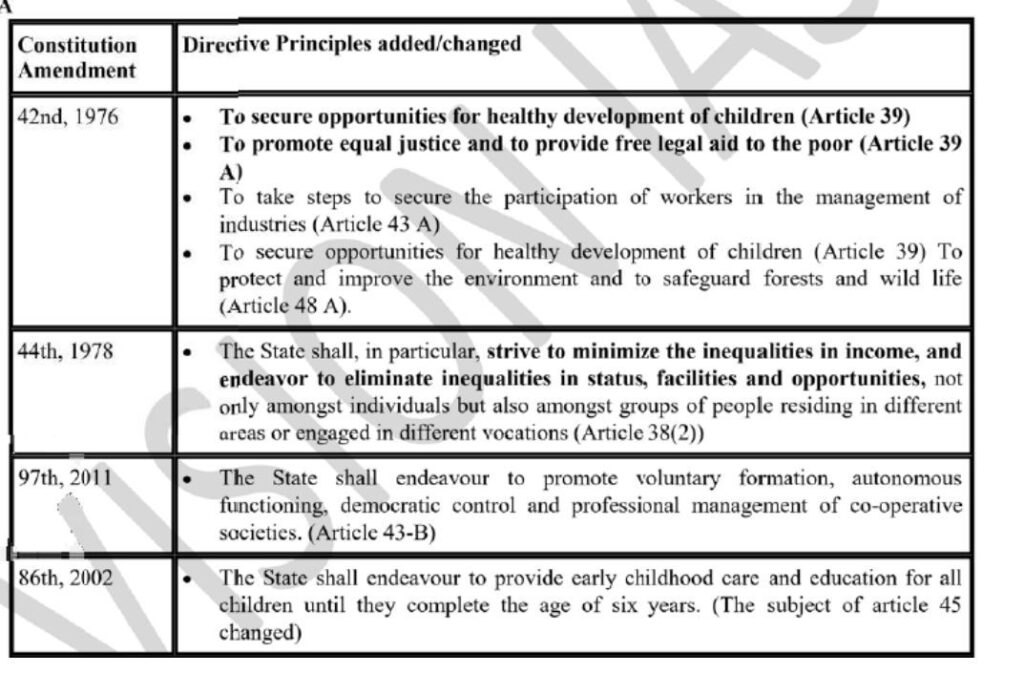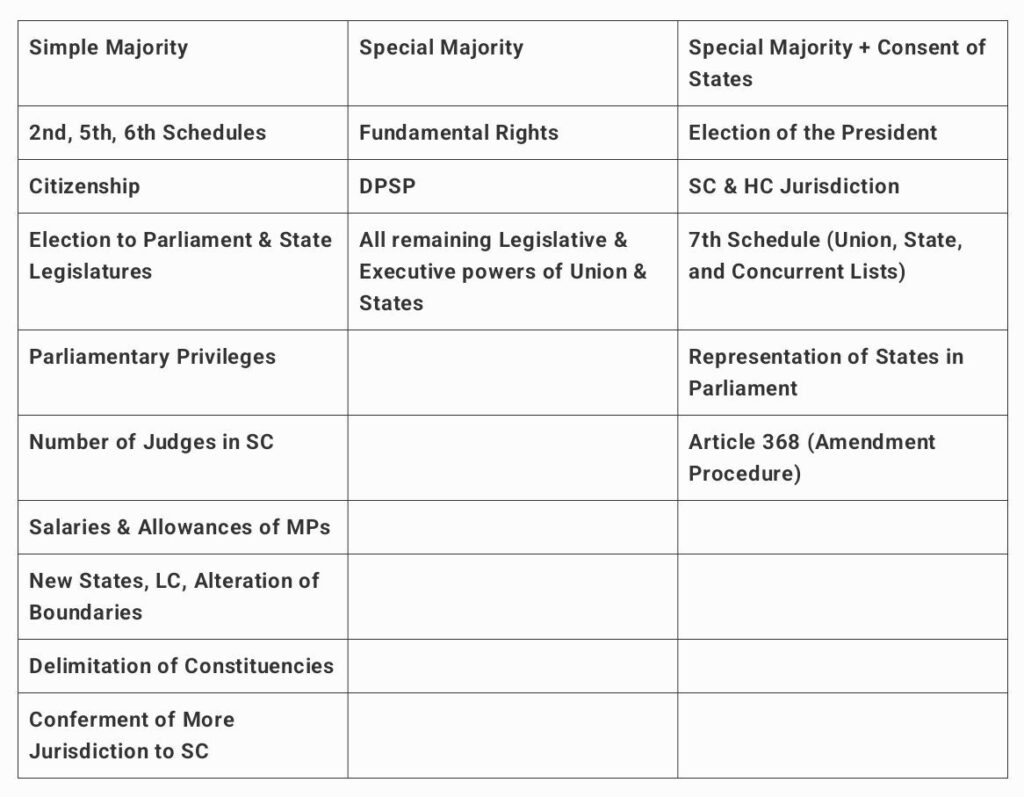Skip to content
DPSP Outside Part IV
Article 335 : Claims of SC/ST in public services .Article 350A : Provision for instruction in the mother tongue for linguistic minorities.Article 351 : Directive for the development of the Hindi language .
Fundamental Duties (FD)
Both FD and DPSP help courts in examining the constitutional validity of laws.Fundamental Duties are enforceable by law (i.e., Parliament can enact laws to enforce them).
Amendment of the Constitution (Article 368)
Only two types of majority are mentioned in Article 368.Simple majority amendments are not considered constitutional amendments under Article 368.
Process of Constitutional Amendment
Must be passed by a Special Majority :
50% of the total membership of the House.2/3rd of the members present and voting .
However, amendments to clauses/schedules of a Constitution Amendment Bill (CAB) require only a Simple Majority , like ordinary bills.Can be introduced in either House , by either a minister or a private member .No prior sanction of the President is required .24th CAA (1971) :
President must give assent to a constitutional amendment (cannot withhold or send for reconsideration).
42nd CAA (1976) :
Distinction between Union and State laws in terms of constitutional challenges:
HC cannot strike down Union laws .SC cannot strike down State laws .
No judicial review of Constitutional Amendments (later overturned by the Minerva Mills case).
Types of Amendments

